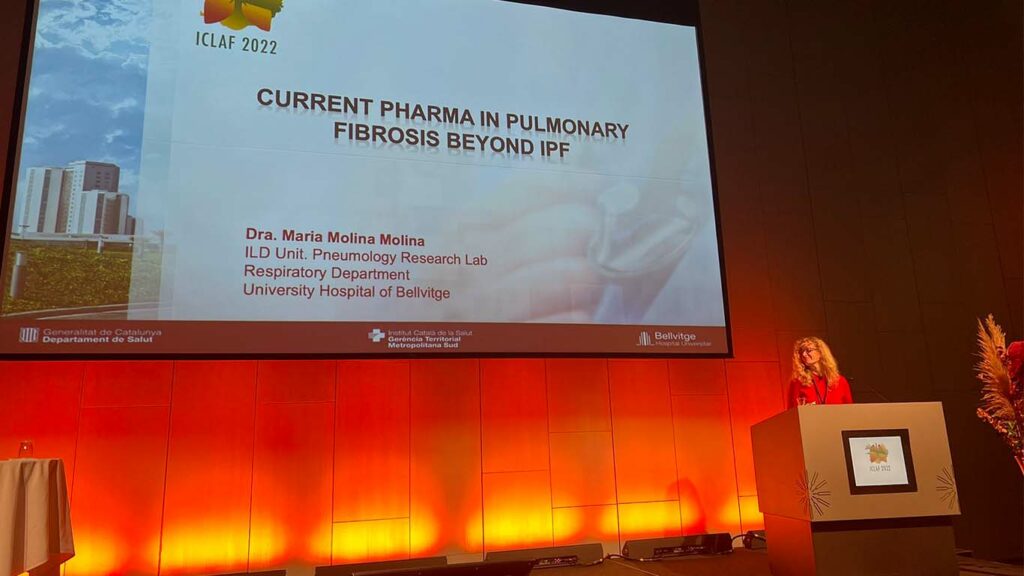Doctors Maria Molina and Vanesa Vicens Zygmunt presented the results of the MADIET clinical trial at the International Fibrosis Congress. The clinical trial was coordinated by the Pulmonology research group from IDIBELL and the Bellvitge University Hospital (HUB) with the participation of hospitals from six European countries. The International Colloquium on Lung and Airway Fibrosis 2022 (ICLAF) was held in Reykjavík (Iceland) from October 1 to 5.
The MADIET phase IV European multicentre study has shown that patients with Idiopathic Pulmonary Fibrosis (IPF) who follow a Mediterranean diet suffer fewer gastrointestinal side effects from treatment with pirfenidone. In fact, this is a usual treatment for IPF patients, with a positive response, despite gastrointestinal side effects.
However, it was observed that there is a lower incidence in hospitals in southern Europe, which report fewer adverse effects than northern countries. One of the reasons that can explain this difference is diet. Until now, there were no studies about the influence of diet on these adverse effects.
Thus, with the coordination of IDIBELL and the HUB, they studied the diet of 90 patients with a prescription for pirfenidone. In this multicenter study, hospitals from Germany, Greece, Italy, the Netherlands, and the United Kingdom have participated, and the HUB as representative of the Spanish State.
The participants were divided into two groups: some have followed a Mediterranean diet -with an abundance of vegetables and garden products, fresh fruit, legumes and cereals, olive oil as the main fat for cooking, fish, moderate intake of dairy products, and a low meat consumption- and the others a diet rich in saturated fatty acids for 16 weeks.
Comparing the gastrointestinal effects of both groups revealed that those who followed the Mediterranean diet suffered significantly fewer adverse effects. In addition, patients who followed a diet rich in saturated fatty acids have had to suspend treatment in a greater number of cases.
The Bellvitge Biomedical Research Institute (IDIBELL) is a biomedical research center created in 2004. It is participated by the Bellvitge University Hospital and the Viladecans Hospital of the Catalan Institute of Health, the Catalan Institute of Oncology, the University of Barcelona and the City Council of L’Hospitalet de Llobregat.
IDIBELL is a member of the Campus of International Excellence of the University of Barcelona HUBc and is part of the CERCA institution of the Generalitat de Catalunya. In 2009 it became one of the first five Spanish research centers accredited as a health research institute by the Carlos III Health Institute. In addition, it is part of the “HR Excellence in Research” program of the European Union and is a member of EATRIS and REGIC. Since 2018, IDIBELL has been an Accredited Center of the AECC Scientific Foundation (FCAECC).

